Falklands War: Shot paratrooper says scars are daily reminder
- Published
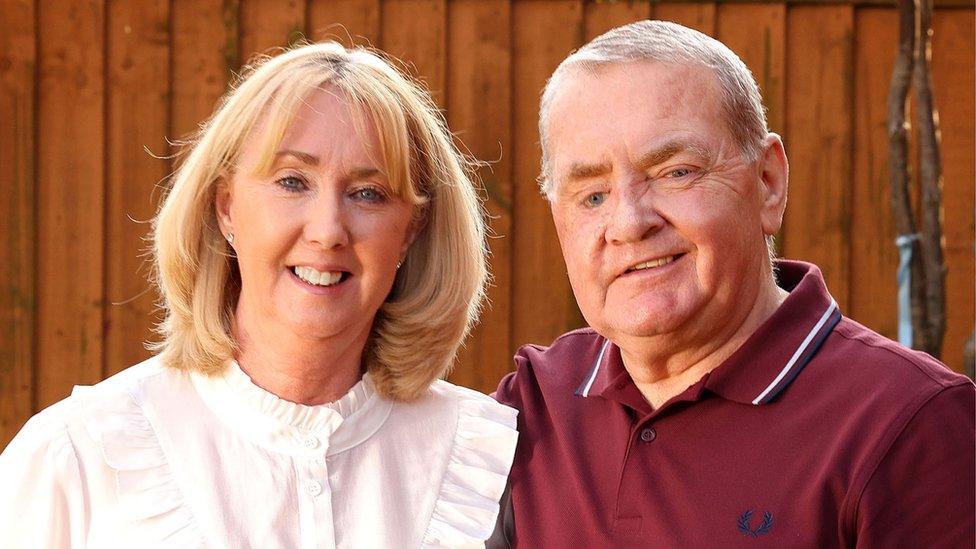
James O'Connell, pictured with his wife Maureen, says he is reminded of the war every day when he looks in the mirror
A man who was shot in the face in the Falklands War has said his scars are "a constant reminder", on the 40th anniversary of the conflict.
Former paratrooper James O'Connell from Bootle, Merseyside, was 22 when he fought in one of the most fierce battles of the war at Mount Longdon.
He lost an eye and a cheekbone and it took five years to rebuild his face.
"It doesn't go away," he said, "every morning when I look in the mirror, I'm reminded."
Mr O'Connell believes he suffered from undiagnosed Post Traumatic Stress Disorder (PTSD).
"But it was different days in 1982," he said.
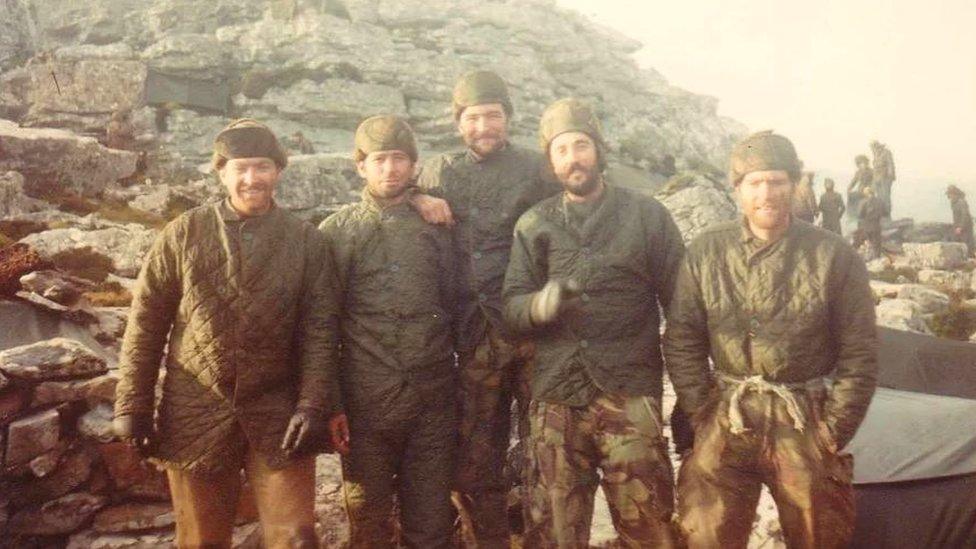
Mr O'Connell, who served in Para 3, wants recognition for the bravery of the men who helped save his life
He told BBC Radio Merseyside he thought at first he had been hit by shrapnel from an artillery round but then realised he had been shot.
"The bullet passed through the centre of my nose, and destroyed my right eye, jaw and cheekbone and front teeth," he said.
Explaining how he coped with the severe injuries and a lifetime of surgery, he said: "I still have my moments, but like everything, you learn to live with it."
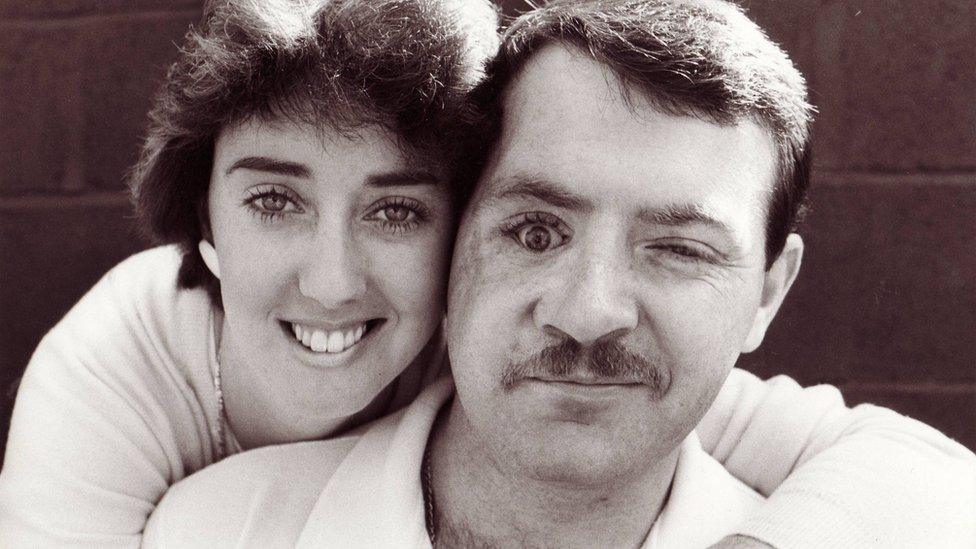
It took five years of surgery to rebuild Mr O'Connell's face
Forty years on from the 1982 war, Mr O'Connell said he often thought of what might have been for his friends and comrades who died in the Falklands.
"It's the lads that aren't here, good friends, and you think where would they be now? They'd be like me, might have kids, but their life was just snuffed out in 1982," he said.
He is now campaigning for the men's "incredible acts of bravery" at Mount Longdon to be recognised.
Among them, Corporal McLoughlin from Birkenhead, who was killed during the battle.
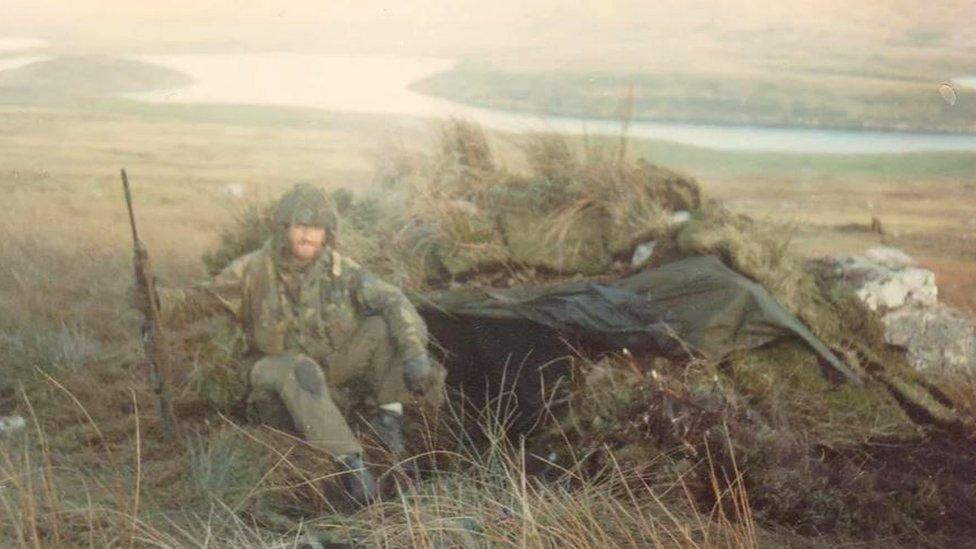
Mr O'Connell has returned to Mount Longdon five times as he researched his book
Mr O'Connell decided to document his experiences in a book, Three Days in June, and as part of his research he has revisited the site of the battle five times.
He spoke to over 100 members of the battalion as well as Argentine soldiers - who he contacted through social media and who have provided Argentine defence maps.

What was the Falklands War?
On 2 April 1982, Argentina invaded the Falkland Islands, a remote UK colony in the South Atlantic.
Argentina said it had inherited the islands from Spain in the 1800s and wanted to reclaim sovereignty of them.
The UK, which had ruled the islands for 150 years, quickly chose to fight, leading to a brief, but bitter war, lasting 72 days.
In the fighting that followed, 655 Argentine and 255 British servicemen lost their lives, as did three Falkland Islanders.
British forces regained the Falklands and ejected the Argentines on 14 June 1982.

He said one of the Argentine soldiers he met during his research had visited him at his home in Merseyside, which was an "emotional experience".
"We are all people," he said. "Governments send us here and there, for whatever reason, but we are all really just decent people."
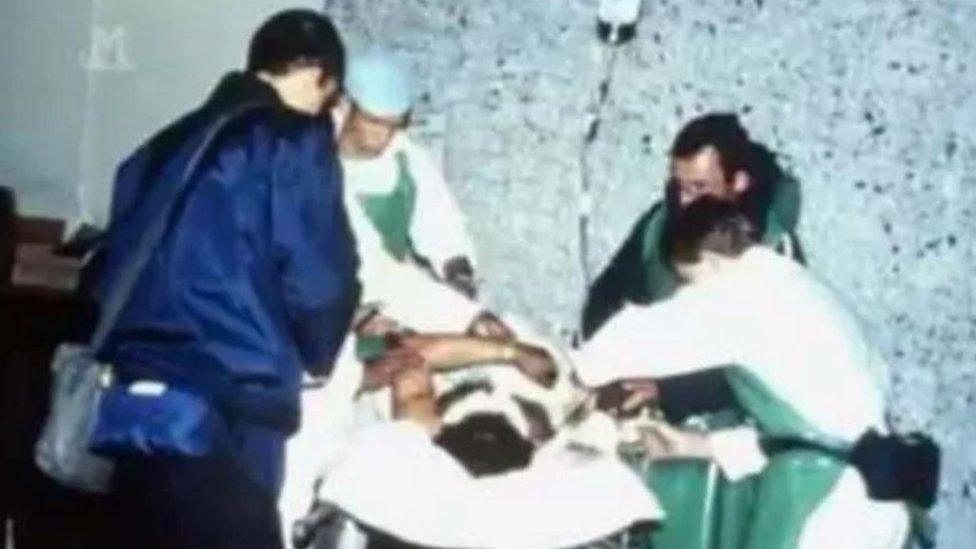
Mr O'Connell initially underwent surgery on SS Uganda, Hospital Ship
Mr O'Connell was diagnosed with kidney cancer while he was writing his book and said he was amazed by "the amount of get well wishes I got from Argentines".
"These were the people we were fighting and now they were telling me to get better," he said.
He has since recovered from cancer and received a kidney transplant on 14 June 2017, on "coincidently the anniversary of the liberation of the Falklands".

Why not follow BBC North West on Facebook, external, Twitter, external and Instagram, external? You can also send story ideas to northwest.newsonline@bbc.co.uk